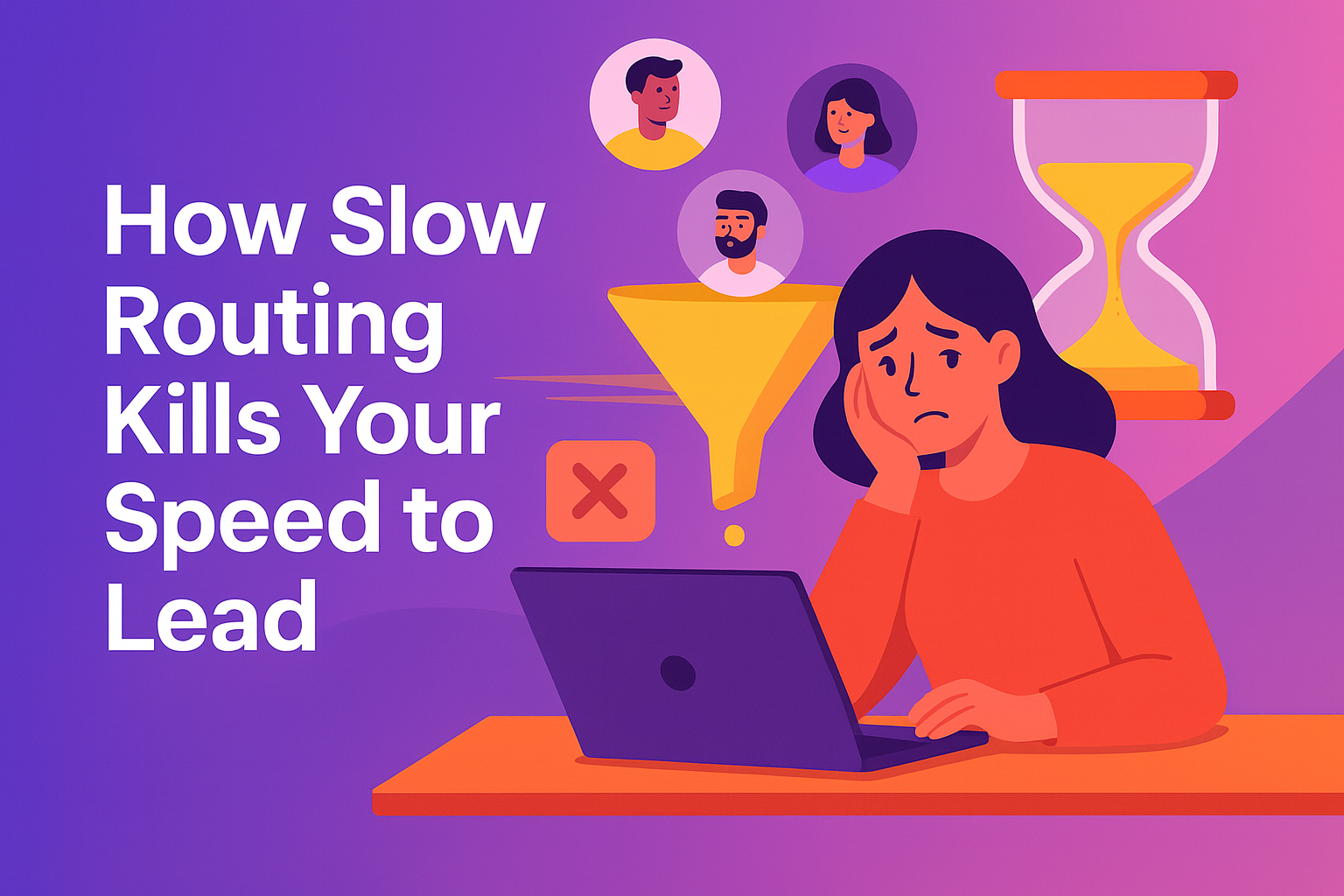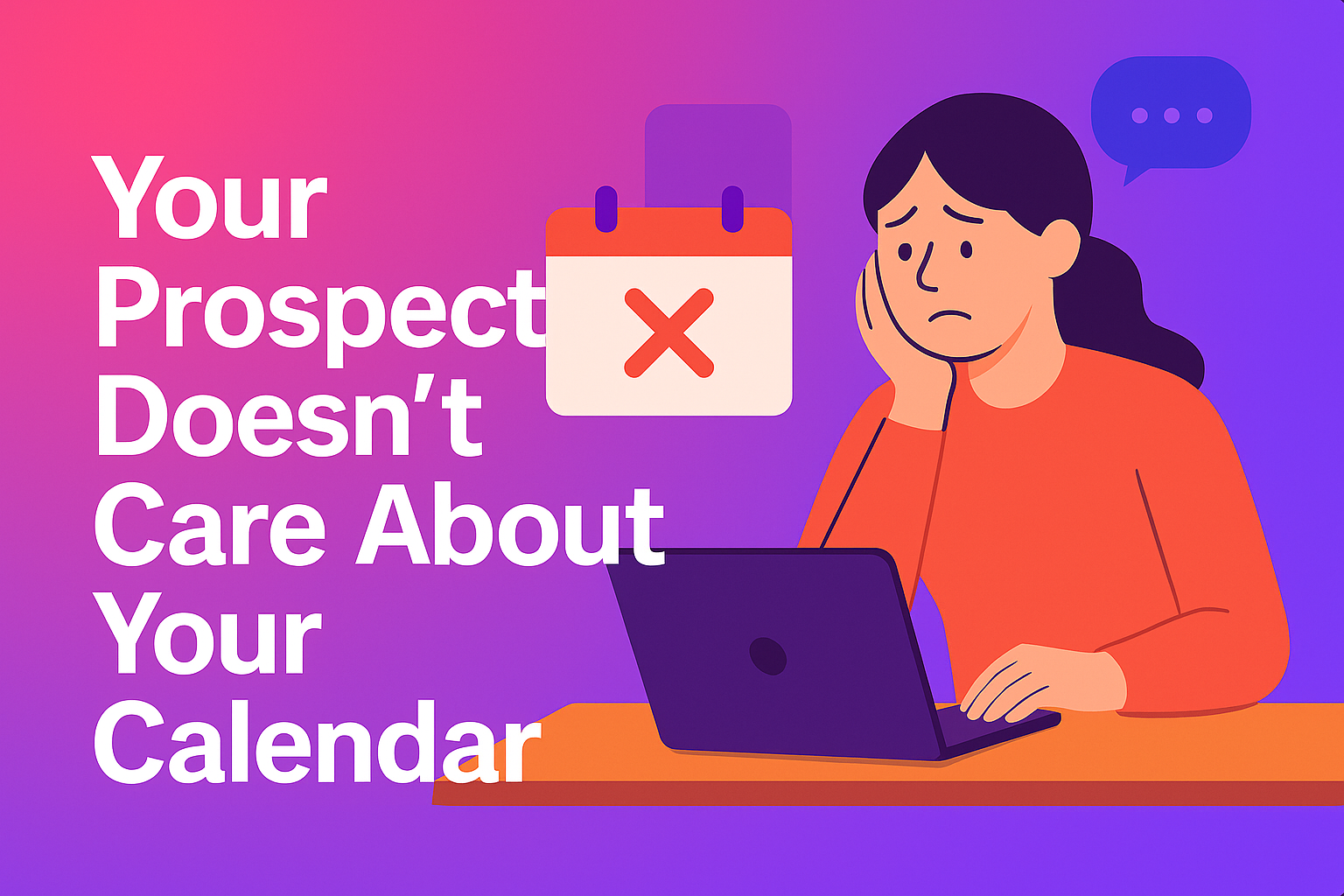How Slow Routing Kills Your Speed to Lead
Every moment counts in B2B sales. When a prospect fills out a demo form, they’re signaling intent. They’re ready to engage, learn more, and potentially buy.
But what happens in the next few minutes determines whether that intent becomes a conversation — or disappears altogether.
For many companies, that moment of opportunity is lost to slow routing — the silent killer of speed-to-lead.
The Cost of Delayed Responses
Today’s buyers move fast, and they expect you to move faster. Delays in routing or follow-up don’t just slow things down; they actively destroy pipeline.
Consider this:
- 78% of buyers choose the first company to respond to their inquiry.
- Responding within five minutes increases the odds of qualifying a lead by 21 times.
- The average response time for B2B companies? A staggering 42 hours.
Those numbers tell a clear story: when routing lags, your lead’s attention fades, competitors step in, and conversion potential plummets.
Understanding the Follow-Up Gap
The moment after a form is submitted is the most fragile part of your funnel.
Most companies treat it like an afterthought — a simple “thank you” page, a CRM sync, a notification queue. But those seconds are everything.
Here’s what typically happens in that gap:
- Leads sit idle, waiting for enrichment or manual assignment.
- Sales reps, often in back-to-back calls, don’t see new submissions for hours.
- By the time someone follows up, the prospect’s urgency is gone.
This follow-up gap is where momentum dies — not because the lead wasn’t qualified, but because your system wasn’t ready.
What Happens During That Gap
Put yourself in your buyer’s shoes. They’ve just filled out your form, but you haven’t reached out yet.
In the next 30 minutes, they might:
- Check another vendor’s website.
- Join a team meeting.
- Get pulled into something urgent.
- Fill out your competitor’s form and instantly book a call there.
By the time your rep finally reaches out, the spark is gone. What could have been a warm, ready-to-book conversation becomes a cold, low-priority follow-up.
You’re no longer capturing intent — you’re chasing it.
How to Eliminate Delays in Routing
High-velocity teams don’t rely on quick follow-up. They remove the need for it entirely.
Here’s how they make it happen:
1. Instant Routing
Route leads the moment they hit “submit.” Use dynamic rules to assign by territory, account ownership, or rep availability in real time. No waiting for CRM syncs or manual intervention.
2. Immediate Calendar Access
Don’t make prospects wait for an email. Instead of a static thank-you page, show the assigned AE’s calendar instantly. The buyer can see available times and book in seconds.
3. Allow Immediate Booking
If a lead is ready, let them act on that intent. Embed scheduling directly after form submission so they can secure a slot while interest is still high.
4. Trigger Personalized Alerts
Notify reps in real time when a meeting is booked. Alerts via Slack or email ensure they’re looped in immediately — no chasing or guesswork required.
5. Build Fallback Logic
If the primary rep isn’t available, route to a backup pool or surface asynchronous options, like a short video walkthrough. Prospects should never hit a dead end.
The Benefits of Streamlined Routing
When routing happens instantly, everything else gets easier.
You’ll see:
- Higher demo conversion rates because prospects book while intent is high.
- More meetings without SDRs needing to manually follow up.
- Faster speed to pipeline, compressing your sales cycle.
- Fewer no-shows, since buyers pick times that actually work for them.
- Happier sales reps, who can focus on conversations instead of inbox cleanup.
A few seconds of automation can recover hours of lost selling time.
Using Data to Continuously Improve
Speed-to-lead isn’t a one-time fix — it’s an ongoing optimization.
By analyzing your data, you can refine your routing logic and uncover hidden inefficiencies that slow your team down.
What to Track
- Response time from form fill to first contact.
- Meeting booked rate across different campaigns or landing pages.
- Lead-to-demo conversion rates segmented by rep or channel.
How to Apply Insights
- Identify bottlenecks — are certain territories or forms consistently slower?
- Adjust routing logic based on high-performing segments.
- Use reporting to align marketing and sales on where leads convert fastest.
Granular insights turn routing from a backend process into a strategic growth lever.
Final Thoughts
If you’re optimizing your top-of-funnel acquisition but not addressing what happens in the first few minutes after form submission, you’re leaving pipeline on the table.
This isn’t about working harder — it’s about designing a system that responds in real time.
By eliminating routing lag, automating scheduling, and using data to continuously refine your process, you’ll not only capture more leads — you’ll create a buying experience that feels effortless.
The fastest teams don’t just win deals. They win first.
For more insights on building frictionless speed-to-lead systems, visit RevenueHero.
Let RevenueHero help your team turn high-intent users into booked meeting without slowing down your funnel.












